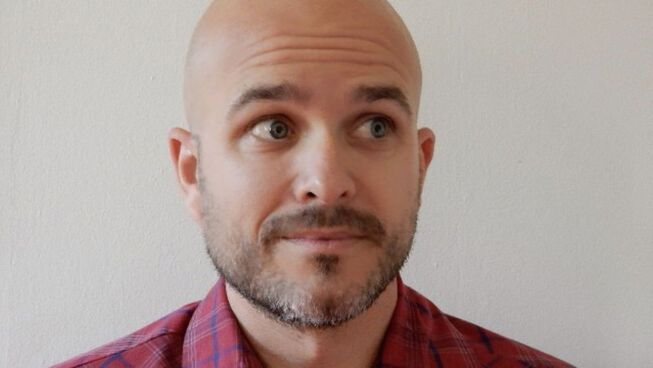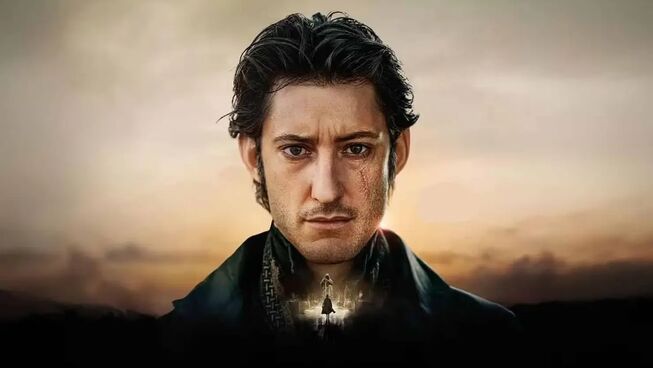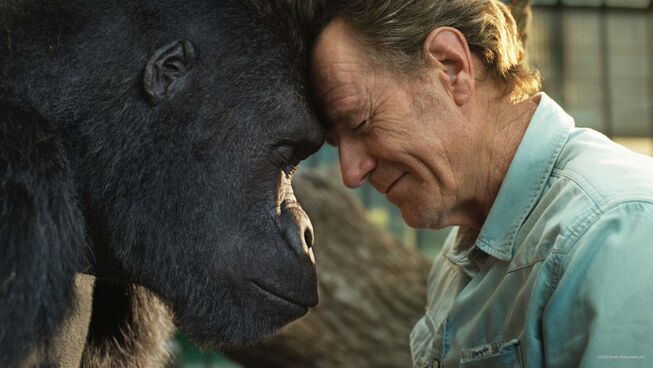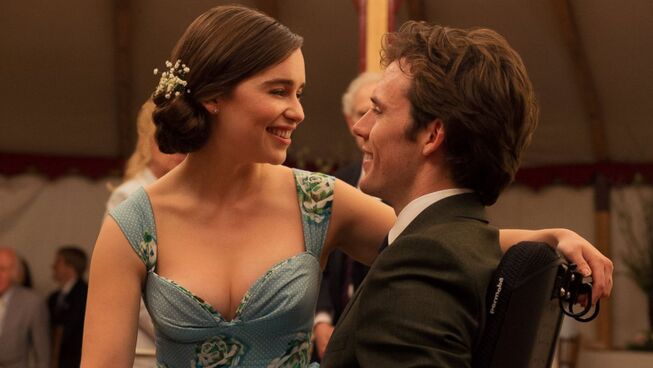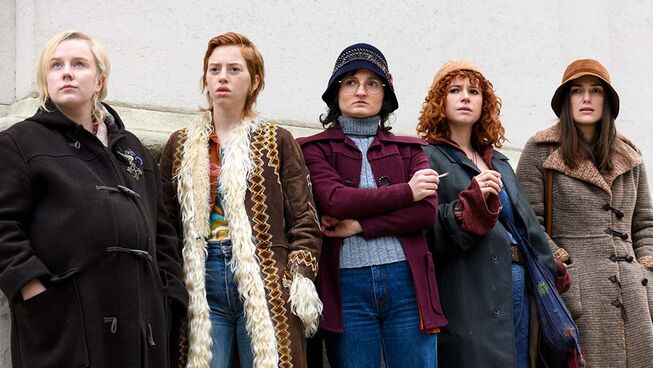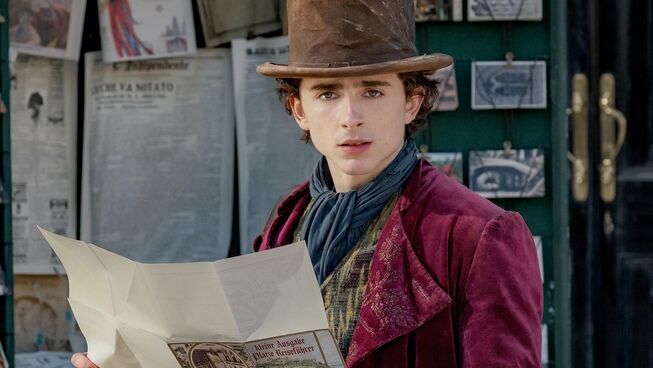Wicked Little Letters
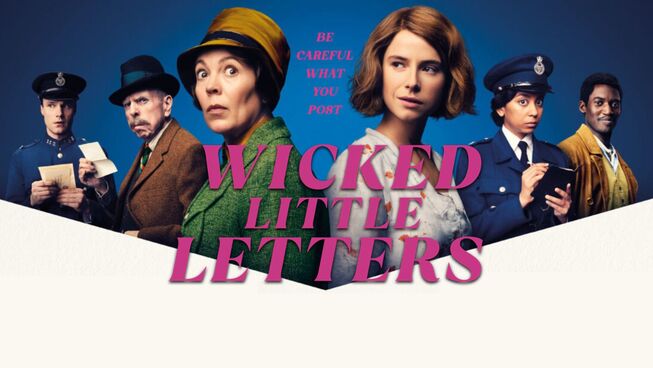
⭐️ ⭐️ ⭐️ (out of 5)
The title of this tepid, unsure British comedy gives you some idea, but most viewers will not be prepared for the level of swearing and insults flowing through a 1920s hodge-podge of stereotypes, repression and “wild” women.
Somewhat based on a true story, Wicked Little Letters seems so delighted at its own foul-mouthed shock tactics that it forgets about what sort of tale it hopes to tell. Led by Oscar winner Oliva Colman (Wonka) and rising star Jessie Buckley (Fingernails), the case of a “poison pen” and its destructive effect upon a community has the appearance of a regular English dramedy.
TRAILER CONTAINS MATURE CONTENT
Colman is Edith Swan, a spinster receiving anonymous letters full of vulgar abuse. From the opening moments, the swift slew of expletives announces what follows. Director Thea Sharrock (The One and Only Ivan) hopes to wrangle cheeky comedy, deeper drama and a revisionist history lesson about women in society but largely defaults to crass content, blasphemy and potshots at blokes, “believers”, and the Bible.
For a movie anchored in the simple idea of blaming Irish firebrand Rose Gooding (Buckley) for the disturbing correspondence, Wicked Little Letters has a lot going on. Sadly, the potent elements fail to ignite throughout a predictable investigation by “Woman Police Officer” Gladys Moss (Anjana Vasan), offset by the contrast between liberated Rose and controlled Edith.
Even if it is accurate, the mix of ethnicities in small-town England a century ago feels forced and overbearing. So, too, does the injection of “suffragette” subplots, as the one-dimensional depictions of Rose, Edith, and Moss skate across each's evident complexities. Surprisingly, the better-known Colman doesn’t register as strongly as Buckley and Vasan. Buckley’s energy and Vasan’s poise carry them through while Colman’s refined gusto is submerged.
Most male characters are fools or tyrants, which does offer chuckles, even as you bemoan the wasted opportunity of skewering gender stereotypes and traditions. The red-blooded performance of Timothy Spall as Edith’s dad can’t change the heavy-handed way he is patriarchy personified. Similarly, Edith’s self-righteous use of Scripture and Christian “cliches” is about as subtle as screaming. Fair enough to have a go at chauvinism or religious hypocrisy. Applause. Perhaps it would be more effective, though, if we didn’t feel hit between the eyes with caricatures who exist just for smug mockery.
You would have noticed Wicked Little Letters does have a wonderful cast. Purposefully stocked with terrific English actresses, its best moments are the banter within Edith’s circle. It's a shame that the wonky tone and shrill obscenities detract from the commendable storyline of women having to fight for equality, respect, and value.
Reel Dialogue: Speak the truth. In love.
Deceit, insults and abuse abound in Wicked Little Lies. So, too, does oppression and mistreatment. Oh, and there’s also fake piety and warping of God’s word. Quite the procession of some of our most significant failings as humans.
The Swan family are a portrait of not practising what they preach. Edith routinely refers to herself as a martyr while she humbly brags about her ability to wait on God’s judgement. Such “selflessness” is steadily smashed by her selfish schemes and damage to others. You can still feel sympathy for Edith, given the modelling of “faith” she has had from her dad. The moment he punishes her with the book of Proverbs encapsulates Wicked Little Letters' vision of ruthless, heartless religion.
Good thing, then, that following Jesus is the opposite of what Wicked Little Lies portrays. As the hypocrisy and cruelty of lip service to Jesus are laid bare on-screen, do not throw the baby out with the bath water. As you dismiss the apparent “Christians” in this British comedy-drama, revel in what the Bible reveals about believing in and following Jesus.
The New Testament letter to the Ephesians contains heaps of examples of what it means to truly live for Jesus. In brutal contrast to the nasty lies swirling about Edith Swan, Ephesians 4:15 instructs followers of Jesus to “speak the truth in love”. Such honesty anchored in God’s majestic love is critical to encouraging others to grow in their own love and devotion to Jesus' ways.
Forget the corrupted, destructive untruths of Wicked Little Letters. Seek out the declared truth, in love, of a life lived for Jesus.
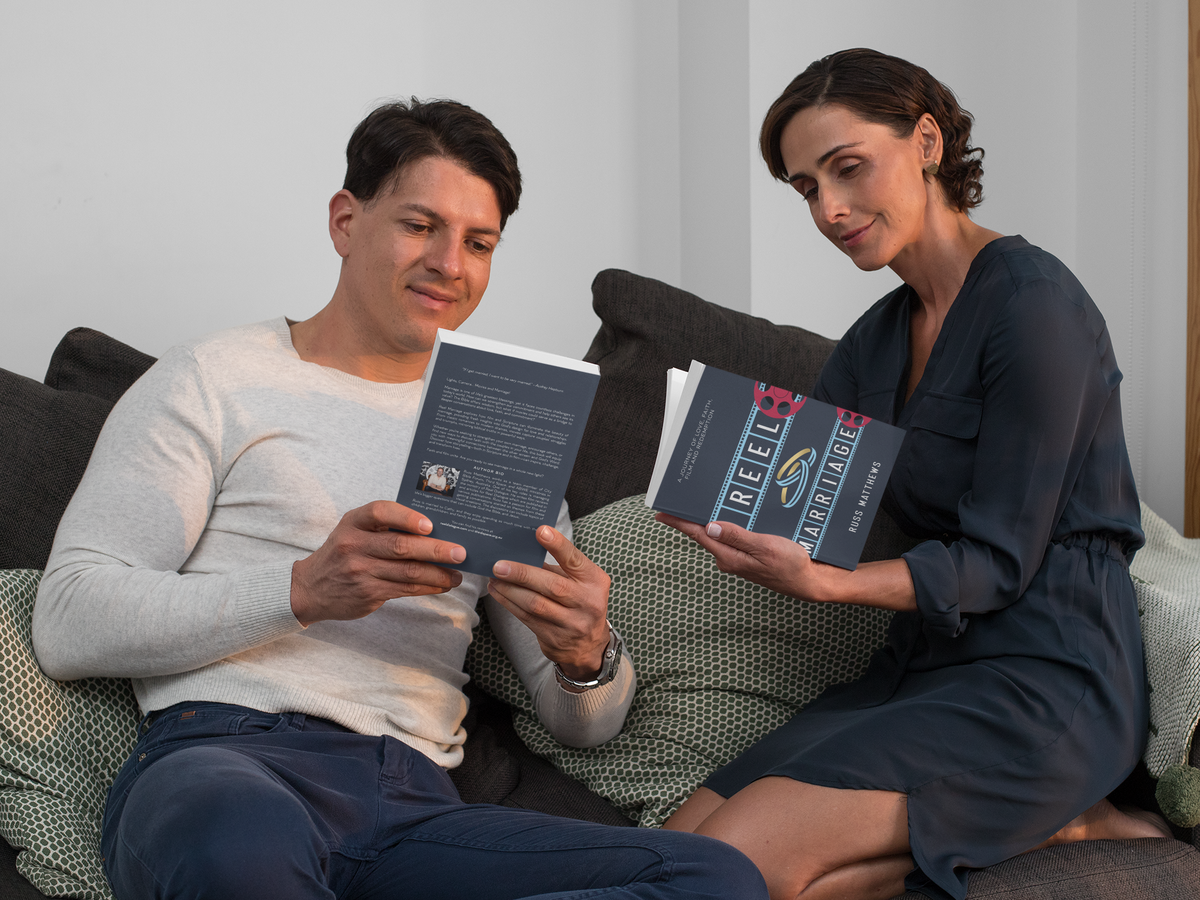
Reel Marriage
Lights, Camera... Movies and Marriage!
Marriage is one of life’s greatest blessings, yet it faces countless challenges in today’s world. How can we strengthen our commitment and help others see its value? The Bible offers wisdom, but what if movies could serve as a bridge to deeper conversations about love, faith, and commitment?
Reel Marriage explores how film and Scripture can illuminate the beauty of marriage, providing fresh insights into God’s design for love and relationships. From classic romances to modern dramas, movies capture couples' struggles and triumphs, mirroring biblical truths in powerful ways.
Faith and film unite. Are you ready to see marriage in a whole new light?
If you order your copy today you will also receive a complementary handbook that is only available with the purchase of the book (Print or ebook)
